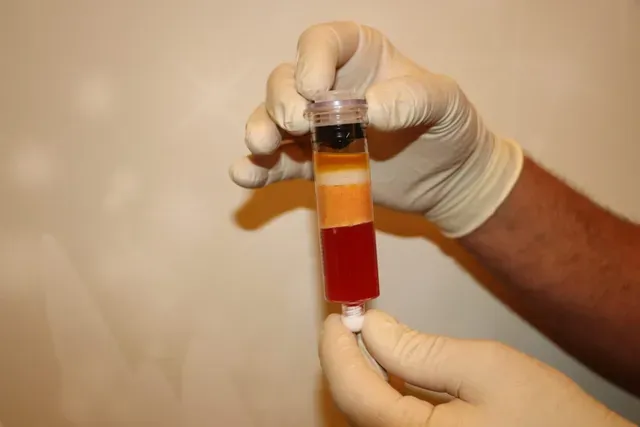Tissue Support Therapy is now used aggressively to address vast health problems, including arthritis. This approach is part of a continually advancing specialty known as regenerative medicine, focused on replacing dead or injured body parts naturally. Notably, the body’s own cells are used.
If you’re struggling with arthritis, you are not alone. Every year, 41 people out of every 100,000 are diagnosed with rheumatoid arthritis. On average, about 1.3 million people in the United States have the condition. Fortunately, different approaches to easing the symptoms and improving the ailment are available.
Tissue support therapy is among the latest treatment procedures. Scientists are still researching the optimal use of this procedure to cure the problem completely, but it’s already proven to be an effective treatment procedure.
This comprehensive guide highlights what arthritis is and highlights the current knowledge on the use of stem cell therapy to treat the condition.
What Is Arthritis?
Arthritis refers to an inflammation and degeneration in the joints and can affect one or several joints. The autoimmune condition results from the immune system attacking joint tissue linings mistakenly and can lead to stiffness, swelling, inflammation, and pain. The soreness may spread to the cartilage covering the joint ends, leading to irreversible harm and impaired or lost function. Osteoarthritis can be started by overuse or a traumatic event and lead to the same progression.
The most common joints that the condition affects include the shoulder, hips, spine, neck, and small joints within your feet or hands.
The most common types of arthritis are rheumatoid arthritis and osteoarthritis. The former results from an autoimmune disorder and the latter is caused by injury or wear and tear on the cartilage cushioning the joints.
What Is Tissue Support Therapy?
Tissue Support Therapy is carried out to replace injured and dead body cells. Stem cells do not represent any kind of tissue. Rather, they can develop into some types of cell. The treatment uses these cells to repair the tissue lining in the joints, torn ligaments and tendons and injured nerves.
The only viable stem cells available today come from the person that is treated. These are purified and concentrated and then injected under an ultrasound guided technique. Stem cells can either be obtained from the patient’s bone marrow or fat.
How Does Tissue Support Therapy Treat Arthritis?
Tissue Support Therapy can substantially treat this chronic inflammatory disorder. As you already know, adult stem cells can unprecedentedly turn into many cell through a process known as differentiation. Physicians administer them through multiple injections around the site of arthritis.
When used in an arthritic patient, the cells can heal the tissue, suppress pain, and improve mobility. This activity can be attributed to mesenchymal stem cells’ strong anti-inflammatory and reparative properties.
Stem Cells’ Anti-Inflammatory Effects
Mesenchymal Stem Cells (MSCs) have been found to hinder various inflammatory molecules’ activities and can enhance protein 6 (TSG-6), or TNF-α stimulated gene expression, a protein with numerous anti-inflammatory capabilities. Consequently, macrophage inflammatory signaling reduces, toning down the proinflammatory cascade.
MSCs may also be exposed to inflammatory molecules like nitric oxide, TNF-α, or lipopolysaccharide released from the injured tissues. This will release prostaglandin E2 (PGE2) to provide negative feedback. As a result, there’ll be a shift from proinflammatory macrophage phenotype to anti-inflammatory.
Based on the currently available knowledge, MSC infusion is associated with substantial improvement.
Qualification for This Treatment Option
Arthritic patients that qualify for stem cell therapy include those who’ve not responded to other medical treatments, those who no longer respond to their current therapies and medication, and those who can’t put up with the recommended treatment for their conditions including surgery. Most opt for this procedure because their previous treatments haven’t presented the expected results and are facing prospects of a joint replacement and painful surgery.
The best candidates for this advanced procedure:
- Medically stable patients who can undergo a minor surgery under local anesthesia – If the case involves a chronically ill patient, the specialist may request surgical clearance from the patient’s physician. Notably, it’s unlikely for a patient to not qualify for the procedure.
- Those experiencing side effects – Anyone who’s undergone unwanted side effects or inadequate treatment through their arthritis medications.
- Failed previous treatments – Patients who don’t want to undergo joint replacement surgery can also use stem cell therapy as an effective alternative to the operation.
- Those taking preventative measures – People who want to maintain excellent joint health and avoid any future instances of arthritis.
Final Thoughts
If you’ve tried numerous medications and therapies to no avail or don’t want to undergo joint surgery, you have the option of exploring stem cell therapy.
The treatment is a highly effective yet minimally invasive therapy for patients suffering from both rheumatoid arthritis and osteoarthritis. Though scientists are still researching this new treatment procedure, it has already shown great results thanks to its anti-inflammatory and damaged cell replacement capabilities.
When looking for a reliable medical practitioner to help with your condition, you need a specialist who’s experienced enough. You also want a facility that’s fully equipped to provide the appropriate treatment safely and effectively. This is where OWM Integrative Wellness comes in.




